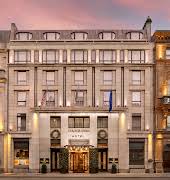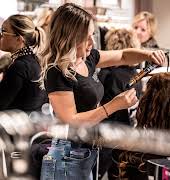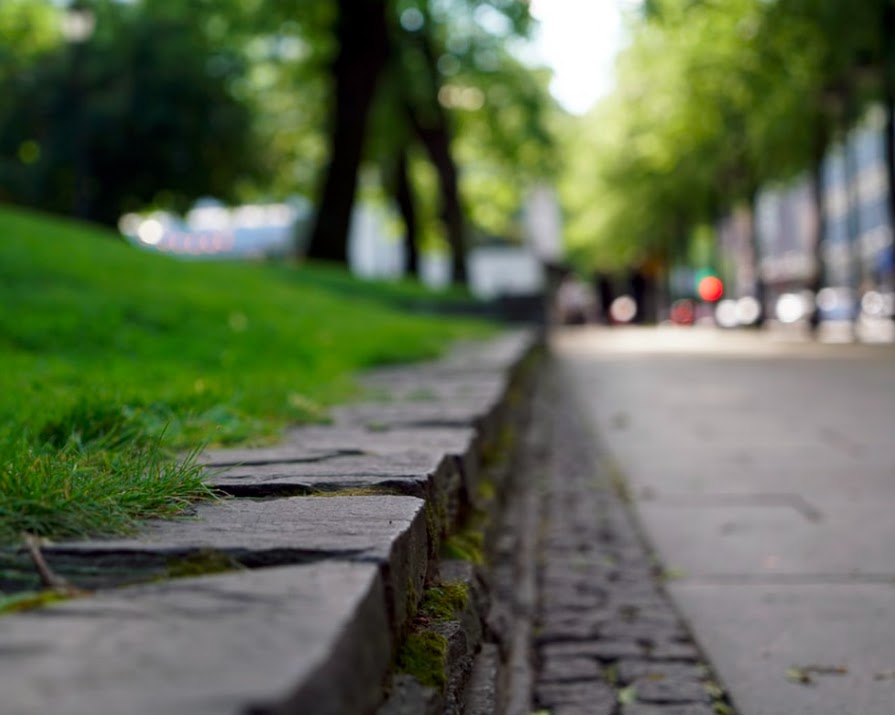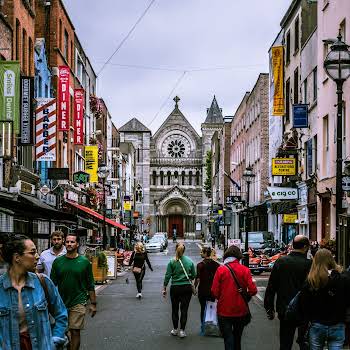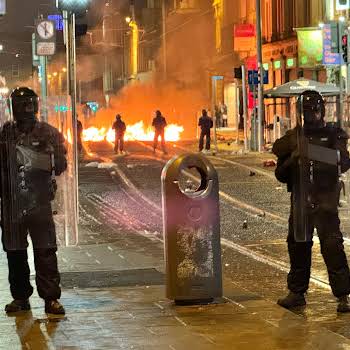
Dundrum teen attack and why we need to talk about racism with our children
By Amanda Cassidy
21st Aug 2019
21st Aug 2019
Gardaí say early indications show the attack on a 16-year-old Muslim girl in South Dublin wasn’t racially motivated. While not everyone is so sure, it does present an opportunity to speak more widely about racism and how we should be inoculating against it. We sat down with the director of the European Network Against Racism in Ireland to find out.
Racism is, sadly, alive and well in Ireland. There are too many of those growing up here who will tell you about the name-calling, the sideways glances, the microaggressions and full-blown acts of violence they experience every single day because of the colour of their skin or the way they choose to practice their religion.
Last Sunday in Dundrum, a 16-year-old girl and her cousin were attacked and punched. She had her hijab ripped off, eggs were thrown and there was upsetting video footage of the assault which rapidly went viral.
Related: Actress calls out the racist bias against Meghan Markle
Immediately, the unprovoked attack was being reported as “racially motivated”. But some felt that without all the facts, the media’s assumption that the victim was targeted only because she happened to be Muslim, was a big journalistic leap. There was a fear that the attack was being sensationalised in order to bolster ratings, especially given there was a video available to share.
Today, gardaí issued a statement saying that they are “investigating all the circumstances”. They’ve appealed for information to be passed on to Dundrum Garda Station (01 6665600) and said that “the incidents are not believed to be racially motivated,” but that further investigations are being carried out. They have also appealed to people not to share the video of the incident.
“If you are Muslim, being attacked for wearing your veil is very much on your radar.”
So, how responsible is the media when it comes to the way we report on hate crime? And does overcooking incidents that are not racially-motivated take away from those who are being subjected to disturbing discrimination every single day?
We spoke to Shane O’Curry, Director of ENAR (European Network Against Racism) in Ireland, who disagrees. “I’d be very reluctant to say that the media overuses the term ‘racism’. It is something that is very much under-recognised and under-reported to authorities. If you are from an ethnic minority background, you will have experienced this often.
“If you are Muslim, being attacked for wearing your veil is very much on your radar. In this context, it is understandable that an attack with this type of pattern is a signal to the Muslim community that it is an attack on them because of their identity”.
Microaggressions
O’Curry, who is in touch with the victim’s family, says that they are awaiting further clarification. “In this case, none of us know the facts until a proper investigation is carried out, but that assumes that gardaí have the wherewithal to gather all the facts.
“The State’s function and capacity to recognise hate crimes doesn’t meet international standards yet.”
“What I mean by that is that they have the right protocols in place involving data collection, investigative procedure and training in place for gardaí to recognise and record hate crime and bias motivations.
“We know from our comparative studies in Ireland that gardaí don’t do this yet. That isn’t to criticise, but to recognise that the State’s function and capacity to recognise hate crimes doesn’t meet international standards yet. We are currently working together to rectify that, but it is not there yet.”
O’Curry believes that the onus is also on the media to discuss and highlight racism. “We need a discussion about the very high incidents of racism that ethnic minorities experience here that is greatly under-acknowledged by wider society.
“We don’t have a central state body to gather official data on these incidents. One of the things we’d like to see is that gardaí gather and publish data on hate crime and monitor their response to it. We are also urging them to publish these figures based on our data”.
Value humans as humans
So are attacks like this getting more frequent? O’Curry says it is something they are currently looking at. “It is hard to say. We’ve been gathering data since 2013 and certainly, incidents have gone up. The number of violent incidents shows a slight upward trend.
“The best inoculation against this thing is proper hate crime legislation and protocols acknowledging and measuring response.”
“The seriousness of the language and the vehemence used is getting worse. Social media too can amplify negativity in this aspect. Not long before this incident, certain social media commentators with a large number of followers spoke out about the need to burn hijabs. For that reason, and without second-guessing the gardaí, I’d be cautious to dismiss the possibility that this wasn’t a racist incident.”
O’Curry agrees that this is also an opportunity to speak to our children and wider society about how inclusive we should be.
“If you guard against differentiating people based on their identity, it is half the battle. Talking about it, highlighting where we can improve, pointing out where we fall short – it all helps. We also need to be careful about what practices we currently have. The best inoculation against this thing is proper hate crime legislation and protocols acknowledging and measuring response.
“We also need to look at our institutional policies and mitigate against intentional and unintentional discrimination across the board in our health systems, social welfare system and examine all policy areas to see if they in any way disadvantage Travellers or Muslims or those of African descent.
“An undercurrent of singling out and differentiating means hatred becomes normalised and it gives almost a type of ‘permission’ to act. But the most important thing to do is also to teach our children, and everyone else, to simply value humans as humans.”
Image via Unsplash.com
Read more: Social media can help combat racism too
Read more: 40 books to read before you are 40
Read more: Abuse of Irish blogger puts racism in the spotlight








